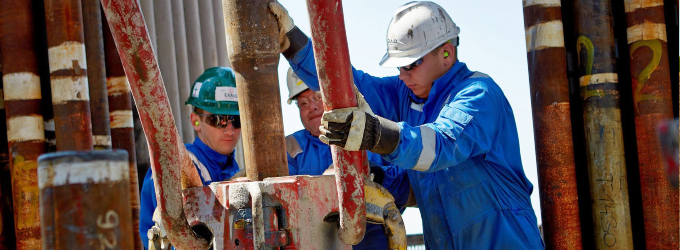(Bloomberg) – U.S. Secretary of State Marco Rubio said in a post on X that a Venezuela oil-export license will expire next Tuesday, defying earlier expectations that it would be extended.

The tighter time frame would put pressure on Chevron Corp.’s operations in the sanctioned nation. The U.S. oil giant has been a major contributor to Venezuela’s economy in recent years, supplying about 20% of its output and contributing to the flow of dollars into the South American country.
That has made Chevron’s license to operate in Venezuela a big chip in negotiations between the U.S. and the regime of President Nicolas Maduro. This week, White House special envoy Ric Grenell met with Maduro representatives in Antigua and returned with an American who had been imprisoned in Venezuela. Grenell then said on a podcast that the U.S. would be extending Chevron’s waiver by 60 days, an assertion that Rubio is now contradicting.
The contradictory statements point to tensions within the Trump administration over how to handle Venezuela, with hard-liners led by Rubio opting for a tough stance against a totalitarian regime. Grenell and others have pushed for a more transactional relationship, arguing that Venezuela represents a crucial partner to slow migration to the U.S. and to make sure the country’s oil and other resources don’t end up under Chinese control.
See also: Venezuela frees U.S. citizen as Chevron waiver set to be extended
“Why would you want China to take over American oil assets and destroy 15,000 American energy jobs?” Trump ally and right-wing activist Laura Loomer wrote on X in response to Rubio.
Loomer has regularly voiced support for Chevron to remain in Venezuela, saying it will further U.S. energy independence.
“I’m going to wait to see what President Trump says about this,” she wrote. “He’s in charge.”
Venezuelan defaulted dollar bonds moved lower on Thursday, with sovereign notes maturing in 2031 sliding around half a cent. Still, at around 19 cents on the dollar they remain near the same levels they hit in April, reflecting that the markets has not ruled out an eventual compromise.
“We are of the view that the recent developments highlight Trump’s willingness to negotiate with Maduro,” Ramiro Blazquez, a strategist at StoneX, wrote in a note to clients. “Therefore, the news should not take bond prices back to historic lows.”
For Blazquez, the decision to renew the license is particularly challenging ahead of the Venezuelan local elections, scheduled for Sunday. The vote is expected to further cement Maduro’s grip on the nation, with the ruling party’s top officials leading rallies and the opposition divided on whether to participate.

